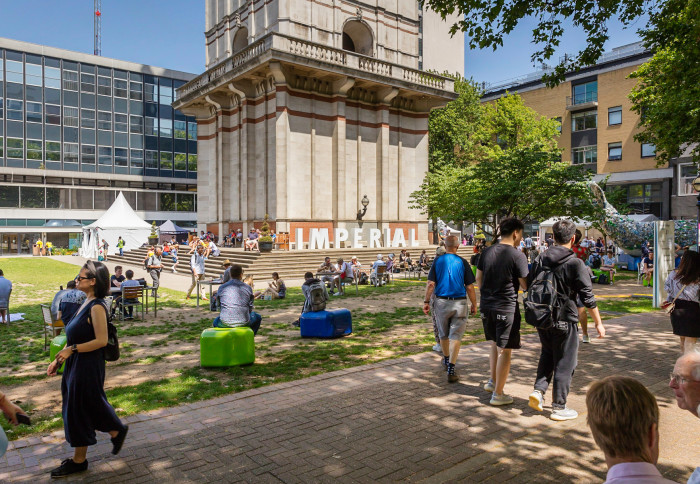When it comes to higher education in the UK, Imperial College London is consistently among the top. Established in 1907, Imperial has a rich history of academic excellence and innovation. The institution initially formed through a merger of three schools: the Royal College of Science, the Royal School of Mines, and the City & Guilds College. Over the years, it has grown into one of the world’s leading universities, particularly in science, engineering, medicine, and business.
Located in the heart of London, Imperial offers students a unique urban experience, combined with a world-class education. Its primary campus is based in South Kensington, surrounded by iconic cultural landmarks such as the Natural History Museum, Royal Albert Hall, and Hyde Park.
Reputation and Global Rankings
Imperial College London has earned an impeccable reputation for academic rigor and research. It consistently ranks in the top 10 universities globally in various academic rankings, such as QS World University Rankings and Times Higher Education. The university’s commitment to cutting-edge research, industry partnerships, and innovation has secured its place as a leading institution.
Its achievements are reflected in numerous accolades, such as its pioneering work in medicine, climate science, and renewable energy. Imperial is not just a university but a key player in tackling global challenges.
Faculties and Academic Programs
Imperial offers a wide range of programs across its four main faculties:
- Faculty of Engineering: Known for excellence in various engineering disciplines, including civil, mechanical, and electrical engineering.
- Faculty of Natural Sciences: This faculty encompasses mathematics, physics, chemistry, and life sciences.
- Faculty of Medicine: One of the largest medical schools in Europe, focusing on healthcare, biomedical research, and clinical practice.
- Imperial College Business School: Provides programs in management, finance, and entrepreneurship, with a focus on innovation and leadership in the global economy.
Popular Degree Programs include engineering, computer science, medicine, and MBA programs, making it an attractive option for students worldwide.
Research and Innovation at Imperial
Imperial College London is at the forefront of research and innovation. The university plays a pivotal role in solving real-world problems through pioneering research in fields such as artificial intelligence, sustainable energy, and public health. Imperial’s researchers have been instrumental in the fight against diseases like COVID-19, developing vaccines and strategies for pandemic management.
The institution fosters a collaborative environment, where students and academics work with global industries and governments to create practical solutions. Imperial’s White City Campus, a hub for innovation, is dedicated to nurturing startups and promoting entrepreneurship.
Student Life at Imperial College London

The Festival brings together science and the arts in a unique programme of creative workshops, talks, exhibitions and performances – all in the spirit of Queen Victoria and Prince Albert’s vision for the Great Exhibition.
Beyond academics, student life at Imperial is vibrant and diverse. There are over 300 student societies and clubs, covering interests from sports to culture, technology, and arts. These provide students with opportunities to explore their passions, network, and relax outside the classroom.
Sports also play a significant role at Imperial, with access to fitness centers, swimming pools, and various sports teams. The Imperial College Union supports students in organizing events and fostering a sense of community.
Accommodation and Housing
Finding the right place to live is a priority for any student. On-campus accommodation is available, with halls of residence situated close to the main campus. These residences provide a community atmosphere, offering both catered and self-catered options.
For those seeking off-campus housing, the college offers assistance with finding apartments or shared housing in London. Living in London can be expensive, but Imperial provides guidance on budgeting and offers scholarships to help with living costs.
Imperial College London’s Alumni Network
Imperial’s alumni network is extensive and influential, with graduates making a significant impact in various sectors. Notable alumni include Sir Alexander Fleming, the discoverer of penicillin, and Brian May, lead guitarist of Queen, who also holds a Ph.D. in astrophysics.
Alumni often stay involved with the university through mentorship programs, donations, and attending global alumni events. This network provides current students with invaluable opportunities for career development and networking.
Imperial College London’s Role in Industry and Business
One of Imperial’s strengths is its strong ties with industry. The university collaborates with businesses on research projects and offers students opportunities to work on real-world problems. Imperial has been the birthplace of several spin-off companies and startups, especially in technology, healthcare, and engineering.
Through initiatives such as the Enterprise Lab, Imperial fosters innovation, entrepreneurship, and collaboration between students and industry leaders, creating a breeding ground for future entrepreneurs.
The Admission Process
Imperial is highly selective, attracting top students from around the world. For undergraduate admissions, applicants need strong academic records, often including high scores in A-Levels or equivalent qualifications. Personal statements and teacher references play a significant role in the selection process.
Postgraduate admissions vary depending on the program but typically require a bachelor’s degree in a related field and a robust research proposal for Ph.D. candidates. Scholarships and financial aid are available, particularly for those who demonstrate outstanding potential.
International Students at Imperial
Imperial College London is home to thousands of international students, representing over 140 countries. The university offers comprehensive support, from visa and immigration advice to orientation programs that help new students settle into London life. Cultural diversity is celebrated on campus, and students can access resources for everything from language support to international student societies.
Sustainability and Environmental Initiatives
Imperial is deeply committed to sustainability. The university has launched several initiatives aimed at reducing carbon emissions, promoting renewable energy, and embedding sustainability into its research and operations. Imperial’s Grantham Institute focuses on climate change and environmental research, making a global impact in these critical areas.
Diversity and Inclusion at Imperial
Imperial actively promotes diversity and inclusion, ensuring equal opportunities for all students, regardless of background. The university has a range of initiatives to support underrepresented groups, such as women in STEM fields, through scholarships, mentorship, and leadership programs.
Career Services and Employment Opportunities
Imperial graduates are highly sought after by employers worldwide. The university’s career services offer guidance on job applications, internships, and career planning. Students have access to internship programs, placement opportunities, and regular job fairs.
Imperial’s graduate employment statistics are impressive, with many alumni finding jobs in top companies in industries such as finance, engineering, healthcare, and consulting.
Imperial’s Impact on Society
Imperial College London has a strong focus on social responsibility. Its researchers, students, and alumni engage in projects aimed at improving public health, addressing inequality, and driving sustainable development. Through partnerships with governments, NGOs, and community organizations, Imperial continues to make a significant impact on society.
Conclusion
Imperial College London stands as a beacon of excellence in education, research, and innovation. Its combination of world-class academic programs, cutting-edge research, and vibrant student life makes it an attractive choice for students from across the globe. Whether you’re interested in engineering, medicine, or business, Imperial provides the environment to grow academically and personally, while making lasting contributions to the world.
FAQs
- What is the acceptance rate for Imperial College London?
Imperial’s acceptance rate varies by program, but it is generally competitive, with rates typically around 15-18%. - How much does it cost to study at Imperial College London?
Tuition fees for international students range from £30,000 to £40,000 annually, depending on the course. Local students may have lower fees. - What are the most popular courses at Imperial?
Popular courses include engineering, medicine, computer science, and business-related programs. - Is there financial aid available for international students?
Yes, Imperial offers scholarships and financial aid options for international students based on merit and need. - How does Imperial College London support entrepreneurship?
Imperial fosters entrepreneurship through its Enterprise Lab, providing students with mentorship, funding, and resources to launch their startups.
